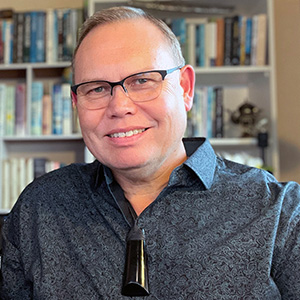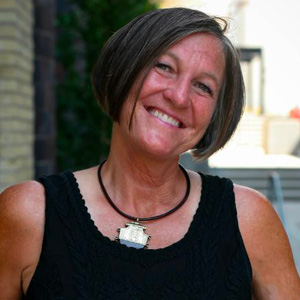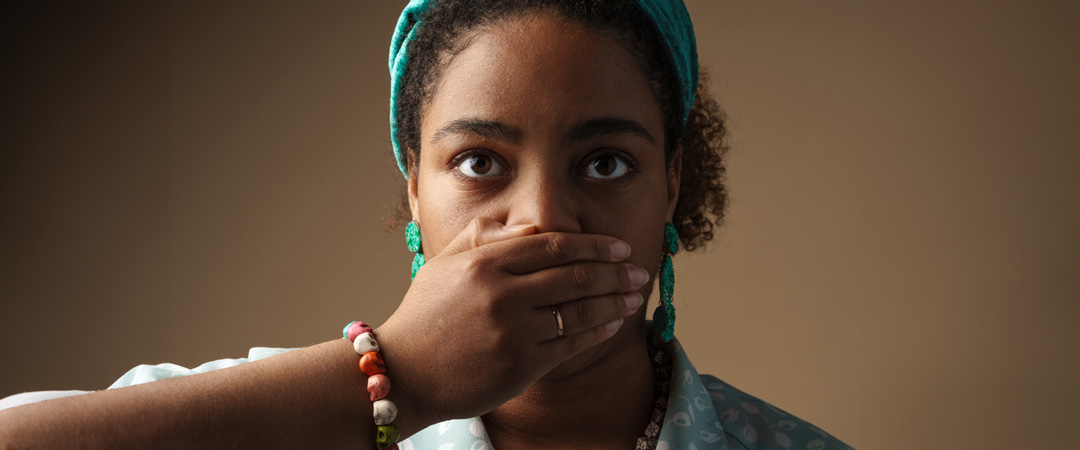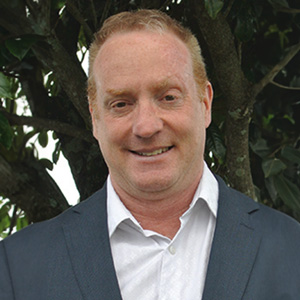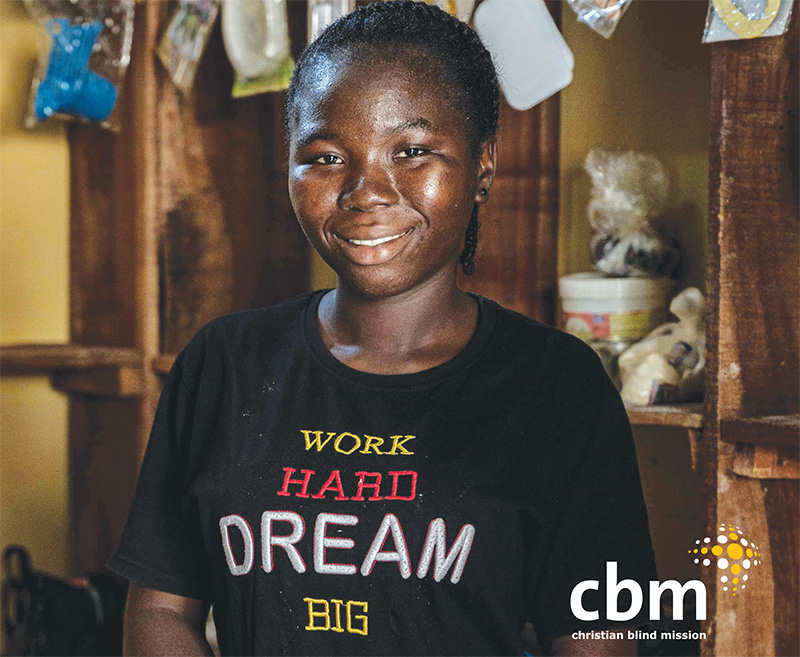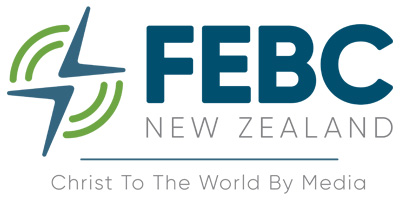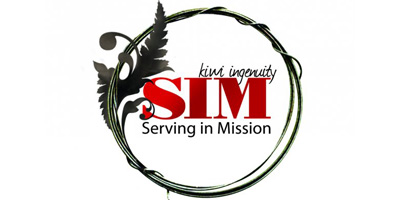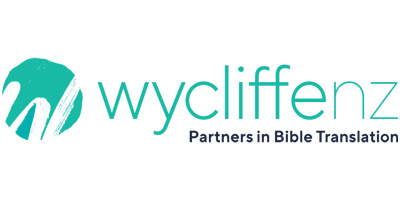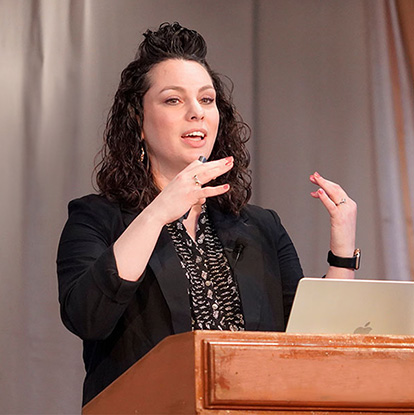
QUICK MENU
EDITORIAL
- Yielding To Gravity
EQUIP
- Just Listen
GO
- Unanticipated Pain
- Faith Dreams Big
- Missional Life of Jesus
CARE
- Missionary Shame
PRAY
- BIble Society, FEBC, MINZ, OMF, SIM, WEC.
SPOTS
- Christianity in Cultural Contexts Forum (with Gina Zurlo).
- Latest News. Events & Opportunities

EDITORIAL
YIELDING TO GRAVITY
By Dr Jay Matenga
Jay is the Executive Officer of Missions Interlink and Executive Director of the World Evangelical Alliance’s Mission Commission. Jay writes and speaks on missions related subjects globally. His blogs, articles, and other public contributions are made available for free on jaymatenga.com
The text for this month is 1 Corinthians 1:9-10 (NLT), “God will (keep you strong and free from blame), for he is faithful to do what he says, and he has invited you into (koinonia) with his Son, Jesus Christ our Lord. I appeal to you, dear brothers and sisters, by the authority of our Lord Jesus Christ, to live in harmony with each other. Let there be no divisions in the church. Rather, be of one mind, united in thought and purpose.” Why? I believe Paul answered earlier in verse 6, “(it) confirms that what I told you about Christ is true”. Our koinonia with God in Christ and with one another in Christ is the primary witness to the power of the gospel, proving its truth. In saying this, Paul is setting the stage for his critique of the Corinthians’ internal divisions, appealing to them so that they do not spoil their witness to surrounding peoples. With their petty rivalries and lack of humility, they are diminishing the Good News. Let those with ears to hear…
I have said before and I will never now stop emphasising the fact that unity does not require uniformity nor conformity. I believe the New Testament writers strongly promote the opposite. Diversity is welcome. A diversity held in communal tension—harmony. But let’s not run too far with what we think diversity includes. There are obvious boundaries to our faith, both theological and ethical boundaries, but they may be wider than many of us care to accept.
You may have heard the terms “bounded sets” and “centred sets”. In a very real sense, the Kingdom of God/New Creation is a large set or macro group centred on Jesus as the Messiah. Paul uses “Lord Jesus Christ” to emphasize this fact. A little like my nan’s use of my first, middle, and last names to let me know that I was acting, ahem, inappropriately (I used to hear my full name a lot!). Only Paul isn’t chastising Jesus, he is using Lord Jesus Christ as the exemplar and giver of his authority to reprimand the Corinthians.
Our faith is centred on the Lord Jesus Christ. Belief in Christ, allegiance to Christ, and bearing the fruit of the Spirit of Christ is the first and last anchor of unity for the global Church. Do you believe and follow the biblical Jesus? OK, you’re my sibling in Christ. Paul uses “in Christ” as shorthand for this. This echoes John’s theology of abiding and resonates with the indigenous world’s deeply spiritual consciousness of our connection with the Creator. All Jesus’ followers are intimately connected with Him and each other. A holy singularity. One.
We are unified because we are centred on Christ, centripetally drawn in by the gravity that Jesus creates. Once the relationship is authentically established it would take an exorbitant amount of effort to break free of it, but it can be done. We get a sense of this in John 15’s metaphor of the vine, and earlier in John 14:2 where Jesus promises to create many dwelling places for us—a promise already fulfilled by the sending of the Spirit and made real to us in the diverse communities of faith that we call local churches. Again, in Matthew 28:20 and elsewhere, his presence (by the Spirit) with us to the end of the age is the unifying factor enabling ever more disciples to dwell together in Him, so long as we choose to do so.
But we are also a bounded set in Christ. His gravity may hold us, drawing us closer and maturing us into the full stature of Christ, but we must also remain aware of the boundary between who is or is not “in”. Contrary to the thinking of theological universalism, biblically faithful believers cannot agree that everyone will be granted eternal life automatically. The New Testament is clear on this fact. A conscious decision to believe, follow, and bear evidential fruit is required. Our faith must manifest in our societies as ‘good works’. We are called to be a blessing, to bring God’s life into dying spaces and light into hearts and minds darkened by wilful ignorance of God’s goodness. I am not talking about a form of political manipulation or propaganda, but real-world loving, bringing healing to hurting people. Protesting injustice afar is all well and good, so long as in our everyday lives we also do good: “live justly, love mercy, and walk humbly with our God” (Micah 6:8). Sometimes it is a little too easy to get caught up in condemning distant abuses and too easy to ignore doing local good, especially if it inconveniences us.
The boundaries of our faith (in Christ vs in the world) are also well established in Scripture, especially the New Testament. Like other Epistle writers, John (especially in 1 John) encapsulates the entire ethic of God as love (agape)—actively benevolent, socially-oriented compassion. The opposite is lust (epithymia)—socially destructive selfish desire. The former is evidence of being in Christ, the latter in the world. Therein lies the border of the bounded set that is ‘in-Christ’. Agape is captured in te reo Māori (Māori language) by the word aroha (aloha in Hawaiian). Aroha is a better anchored word than the English ”love”. Agape translated as ”love” loses its potency and it is too easily interpreted in ways the Bible doesn’t condone. Aroha on the other hand infers a strong social obligation and commitment to others as part of our belonging, dwelling, or abiding together. Drawing from spiritual realities, aroha encapsulates grace, mercy, and loving kindness towards others. It is dynamically equivalent to the Old Testament’s (c)hesed and the New Testament’s agape and charis.
Encouraging unity in the midst of differing perspectives of the Christian life is no easy feat. In the age of democratised information, pastors can no longer guarantee that all of their congregation will agree with their message. Congregants are listening to many other voices as well—many of them not so healthy. Scale that up to global Christian networks and the complexities multiply. Yet, in important ways things get simpler when working at a metaphorical 30,000ft. There is so much complexity across the board that network leaders are forced to consider what is essential to the faith. As the ancient saying goes, “In the essentials, unity; in the non-essentials, liberty; in all things, charity.” While the source of the saying is debated, the truth of it remains, and the unity of the global church depends on it. In the paragraphs above, I have laid out what I consider to be essential. Everything else is contextual.
That our faith is a contextual faith is the prime reason for its spread across the face of the earth, with freedom to be expressed in indigenous forms and meaning emerging from culturally determined realities. It is a missionary faith, ever inviting more people in—generating new habitations for the Holy Spirit to dwell and Christ followers to abide as they co-create New Creation in their contexts. It is this exciting dynamic that draws me to serve at the intersections of difference within the global Church and to promote World Christianity as a whole. To satisfy my increasing sense of call to focus on World Christianity I have prayerfully felt the need to relinquish my local responsibilities. Therefore, I have tended my resignation from Missions Interlink (NZ) from 31 July 2024. I will continue to lead the Mission Commission (MC) of the World Evangelical Alliance in a 50% capacity and then contract my editorial services to the new Christian Daily International (CDI) online news service. My responsibility with CDI will be as Editor of the Opinions section with the aim of amplifying voices from the growing edges of World Christianity.
A diverse variety of voices will find liberty on the CDI platform so long as their experience of God in context exhibits the essentials of our faith. In addition to ensuring that content remains factually correct, biblically faithful, and coherent, my job will be to make sure they also remain charitable in all things. In this I hope to nurture koinonia across the global Church and show that we really can be of one mind, united in thought and purpose.
Needless to say, there will be some changes in Missions Interlink from 1 August 2024. The BULLETIN in this current format will cease after the July edition. Please pray for those members of Missions Interlink who are available to join a meeting on 30 May 2024 to explore the future priorities and functions of the association. Pray for the Missions Interlink Council as they lead the change process, and especially WEC Director Joseph Bateson who chairs the Council and will shoulder leadership responsibilities from 1 August until new leadership is decided. Pauline Wood is vacating the administrator’s responsibilities as well and there is a need to find a new part time administrator, ideally by 1 July to enable a decent handover. See the vacancy notice below for more information.
It has been my great honour to serve the Missions Interlink community for almost nine years. I plan to remain as an individual member, continuing to be involved in the community as I am able. Please pray for Pauline and me as we work to make the transition as smooth as possible for Missions Interlink and ourselves.
For now, kaua e waiho ma te kupu, ma te arero te aroha; engari ma te mahi, ma te pono (let’s not merely say that we love each other; let us show the truth by our actions), 1 John 3:18. In this way we participate in God’s purposes, Together: On Mission.

JUST LISTEN
HEALTHY COLLABORATION ACROSS CULTURES
By Dr Brent Fulton
Brent Fulton is the founder of ChinaSource. Dr. Fulton served as the first president of ChinaSource until 2019. Dr. Fulton holds MA and PhD degrees in political science from the University of Southern California and a BA in radio-TV-film from Messiah College. An avid China watcher, Dr. Fulton has written and taught extensively on the church in China and on Chinese social and political phenomena. He is currently facilitating a network of member care professionals serving missionaries sent out from China. He also consults with other organizations on the impact of China’s religious policy. This article is curated from China Source, originally published 28 February 2024.
Talking with a Christian from China who serves cross-culturally in Asia, I was struck by the contrast he drew between colleagues in foreign organizations with whom he seeks to partner and his fellow Chinese workers in the field. I had asked about how these organizations were coming alongside China’s emerging missions movement as it engages with unreached peoples abroad.
Usually their help hurts.
With their well-crafted organizational missions, proven methods, and measurable goals, Western and Western-influenced entities can easily overpower the less experienced workers from China.
They all want to help, but it’s overwhelming. Not a lot of them understand the situation of the Chinese field workers. They just want to get the job done. They want to make progress on their organizational agendas.
He did acknowledge that their influence has been instrumental in helping the Chinese to see the big picture and to understand how to reach people groups holistically, but practically speaking, they seemed to be talking past one another.
Chinese workers don’t know a lot about how to reach the people group. They don’t have a professional perspective on Bible translation, media production, or such things. They only want to be able to stay there, to be accepted by the local people, have friendships, and share the gospel. It’s very simple.
Missions: A Task to Accomplish?
Over the last century, the Western missionary enterprise has boiled down the Great Commission into a defined task. Ralph Winter’s introduction of people group thinking in the 1970s allowed the task to be further quantified and to envision the day of its final completion, when the last out of thousands of unreached people groups receives the gospel in a language they can understand.
Winter is rightly credited for highlighting the vast numbers of people without a credible gospel witness. Yet the task-oriented approach that has come to characterize modern missions turns the Lord’s final command in Matthew 28 into a to-do list:
- Go!
- Disciple!
- Baptize!
- Teach!
Over the decades, metrics have been established to ensure that the right things are getting done, and funding—contingent on being able to demonstrate measurable progress—raised around the completion of these activities. The partnership movement that emerged in the 1990s has broken down the task into its component parts (research, Bible translation, seed sowing, evangelism, and so on), with each agency taking on its appropriate role.
As the established missions force meets new workers from China, it is this mental operating system that informs their approach to partnership on the field. The underlying narrative is that we have a job to do, and those being sent out from China are part of God’s provision for getting it done.
Or a Life to Live?
In counterpoint to the command contained in the closing verses of Matthew 28, the Great Commission appears in Acts 1:8 as a promise: “You will be my witnesses….”
Christ’s messengers here are characterized by who they are, not by what they do. To bear witness obviously requires action, but a witness is first of all someone who testifies to what they have seen and heard. The implication is that out of a lived relationship with Christ, empowered by the Holy Spirit, his followers will bear witness through their lives, beginning at home and extending to the ends of the earth.
In his high priestly prayer recorded in John 17, Jesus addresses the corporate nature of that relationship. As his followers live out the unity they have in Christ, the world will come to know who Jesus is.
I couldn’t help but think of this passage as I reflected on the words of my friend from China:
Most Chinese workers care about the trustworthy relationship more than tasks or organizational goals. I feel like to build up the trustworthy relationship through caring, listening, is a good start…. The question is how you can help from their perspective, not give them another task….
As Chinese we value community. We value relationships. But in the field, it’s really challenging when you are alone…. If the… global body of Christ can be there and say, “We are together here with you. I have my struggles, and you have your struggles, but we are together, praying to God together and seeking his guidance and help together”…that can be very comforting and can be an encouragement.
Rethinking Our Common Mission
Rather than assuming that the Chinese missions force will naturally find its place within the established Western-led missions enterprise, perhaps it is time for some deep conversation about what it is that God is calling us to do together. As this Chinese worker reminded me:
We are together for God’s kingdom. It’s not for your organizational goals. It’s not for field workers to be successful. It’s for expanding God’s kingdom here. So, to take a step further, what can we do together to make that happen?
Perhaps those seeking to come alongside this emerging movement need to experience their own ethnocentric conversion, what missiologist Darrell Whiteman describes as a reexamining of the cultural mores that have conditioned how they see God at work in blessing the nations.
Where to start?
If you don’t know how to help them, just listen.
BY JEAN JOHNSON
Jean is the author of We Are Not the Hero: A Missionary’s Guide for Sharing Christ, Not a Culture of Dependency. She has over 35 years of vocational cross-cultural ministry experience including 16 years of service in Cambodia. Jean is the director of Five Stones Global (fivestonesglobal.org). Five Stones Global provides missionaries with the coaching, training, and practical tools needed to multiply disciples organically among their host communities–utilizing biblical and reproducible models. This article is curated from Evangelical Missions Quarterly, Vol. 59, Issue 4; published in October 2023.
Short-term gain for long-term pain
Let me share an example from South Asia. A visiting short-term, medical-mission team paired up with a group of near-culture missionaries and a local church to host a pop-up medical clinic. Over 1 week, nearly 100 people were seen by visiting doctors and nurses from America. Most of those people were treated with medications, vaccinations, and vitamins. Each patient received a presentation of the gospel and was prayed for as they ended their turn in the makeshift clinic. Upon departing the region, the visiting team provided the near-culture missionaries and church leaders the names of people they should visit because of their favourable responses to the gospel presentations. Upon arriving home, this medical mission team celebrated the many short-term gains of their work with their home church.
Meanwhile, the near-culture missionaries and local church leaders experienced long-term pain—not of the medical sort, but of the gospel and discipleship sort. For example, some people complained that they didn’t seem to receive the same treatment as others, even when it wasn’t warranted. Others asked questions like, “How can we get a hold of those syringes that sucked out the bad air and spirits from us?” They’d clearly interpreted their experience with Western medicine based on their traditional beliefs.
When the near-culture missionaries and local leaders visited people, they thought were new believers, they were asked questions like, “Why have you forsaken our traditions to chase after foreign gods?” It became clear that coupling free medical help with a request to respond to the gospel nearly always resulted in a “yes” in a culture that doesn’t want others to lose face.
A few people came to church, but left when they realized there was no ongoing help or handouts. And when local disciples tried a similar approach to sharing the gospel with a clinic using their local resources, it paled in comparison to what the foreigners provided. This caused the community to look down on them and made them feel inferior.
So why would near-culture missionaries and local church leaders continue to host teams if there are so many unintended consequences? Why not initiate models that work in their context? They said, “We depend on the financial support that comes our way through these teams.”
Assuming, activating, and attracting church poverty
We observe three types of behaviors correlating to what we will call church poverty:
- Assuming church poverty is perceiving people and churches in a cross-cultural context as lacking and needy based on our own values, church experiences, and economic standards of living.
- Activating church poverty is stimulating a sense of poverty by raising people’s perception of what they think they need to function and succeed as a church, which leads to comparative poverty. Comparative poverty is when people feel that they can only be successful if they have what others have, and thus focus on seeking out sponsors rather than recognizing their own value and mobilising themselves.
- Attracting church poverty is giving to, aiding, and funding churches in a way that causes the recipients to view their poverty as an asset – that they are better off not developing themselves in certain areas so they can depend on others.[1]
The medical team from abroad assumed that the local disciples of Jesus were underdeveloped and lacked ideas and methods to share the gospel-as-word and gospel-as-deed within their own communities. So they brought their expertise and tools of the trade with them, which activated a mentality that the local disciples’ approaches and resources were insufficient. The fringe benefits of hosting teams attracted a poverty mentality. In other words, downplaying their own strengths proved more lucrative than developing ideas and efforts that were locally driven, initiated, resourced, etc.
Additionally, surrounding churches that heard about or observed the medical clinics started down the path of comparative poverty. They said to themselves, “If we had rich foreigners working with us; we would be successful.” And the biggest tragedy is when the Hindus and Muslims in this region observe the unintended consequences of this church poverty and thus move further away from the gospel.
G.P.V. Somaratna sheds light on this condition: “In Sri Lanka, Christians are being viewed as vultures nurtured on foreign funds and driven to hunt for the poor mortal souls of the gullible and poverty-stricken non-Christian.”[2] Additionally, J.R. Meydan and Ramsay Harris reveal that “Muslims assume that the principal methods Christian missionaries intentionally use to lure Muslims away from Islam and to Western Christian culture is by buying them off with gifts and money, often under the guise of relief and development.”[3]
Triggering these reactions to the gospel becomes counterproductive to the whole reason for medical teams partnering with local Christians. This all adds up to a pain of a different sort – not of the medical sort, but of the gospel and discipleship sort.
Assume, activate, and attract dignity
“It’s not the monkey on top that makes a tree fall, but it’s the work and effort of numerous small insects and ants,” explains an African proverb. Disciples and churches in the so-called developing world may seem small and incompetent from our position way high on top of the tree, but many ants that work together can fell a tree.
Donald McGavran is known for saying, “In every apple, there is an orchard.” Instead of importing models that are not reproducible through cross-cultural relationships, we can ask, “If we put our minds and actions together, what could we accomplish?” This serves as an ‘assume dignity’ mindset.
In this case, the belief starts with us—the belief that every group of people has around them everything they need to obey Jesus Christ in their God-given setting. If we assume local ingenuity and capacity, rather than neediness among a people, we will treat them as significant partakers in God’s kingdom work in their own Jerusalem and Judea. If we treat them with such respect, we will activate dignity and attract dignity.
Ponder the pain
By now you might be asking, “What are you saying? Should we forgo pairing foreign medical teams with local disciples and churches in other countries?” I can’t make that decision for others. But I invite you to ponder a pain of a different sort—long-term pain that affects local gospel and disciplemaking efforts. Are short-term gains worth the long-term pain that negatively affect local reproducibility and multiplication of disciples?
FOOTNOTES:
- Jean Johnson, Standing On Our Own Feet Workbook: How to Encourage Indigenous Churches to Operate from a Place of Dignity and Sustainability in Global Mission (Maitland, FL: Xulon Press, 2018), 32.
- G. P. V. Somaratna, “Buddhist Perceptions of the Christian Use of Funds in Sri Lanka,” Complexities of Money and Missions in Asia, ed. Paul DeNeui (Pasadena, CA: William Carey Library, 2012), 9.
- J. R. Meydan and Ramsay Harris, “Are We Nourishing or Choking Young Plants with Funds?” From Seed to Fruit ed. Dudley Woodberry, (Pasadena, CA: William Carey Library, 2011), 231.

BY DR MURRAY SHEARD
Murray is the Chief Executive Officer of cbm New Zealand and has worked in international development for over 15 years. He was born in Wellington and grew up in Thames. From there, he has lived and worked across the world, including a year within the walls of the Old City of Jerusalem. Murray joined cbm in August 2018, after working at Tearfund, where he led the department that introduced the Ethical Fashion Guide and the Justice Conference to New Zealand. Murray has a PhD in Ethics and Philosophy from the University of Auckland. Murray and his wife Joy have two young sons, Finn and Jamie. Friends with disabilities taught him a lot about the reality of their lives, and the difficulties they face.
This month, as we celebrate Mothers’ Day, we remember a group of mothers who have lost their hope, due to the life-long smell, shame and isolation of obstetric fistula.
Faith, in Nigeria, was one of these mothers. Every day she faced the pain of constantly leaking bodily waste, as a result of the traumatic birth of her precious baby boy. Last year, I was fortunate to see cbm’s obstetric fistula programme in Nigeria in action and met mothers like Faith.
Lack of access to quality maternal healthcare means that many mothers in Nigeria are not getting the care they need during delivery. This can result in an obstetric fistula—a childbirth injury that, if left untreated, can leave mothers incontinent.
Do you see what it says on Faith’s shirt? “Work hard. Dream big.” Faith’s big dream was to learn cake baking and event planning, to support herself and her family. But that dream was shattered when she developed obstetric fistula. For two long years she was shunned, isolated and became utterly depressed.
Obstetric fistula is a debilitating health condition, and Nigeria accounts for 40% of global cases. It is a preventable and treatable condition, but because of circumstances such as poverty and lack of access to health care, an estimated 50,000–100,000 mothers worldwide develop this condition each year. Mothers with obstetric fistula are often excluded from daily activities, husbands frequently leave them, and they are isolated from their village due to their incontinence. Many mothers live with the condition for decades, unable to access the medical intervention that can change their lives.
“I felt really helpless,” Faith remembers. After delivering her baby boy, Faith was shocked to discover urine leaking freely from her body. “I thought it would pass, but it continued day after day.”
Without help from kind and caring people like you, obstetric fistula is a life sentence. When cbm (Christian Blind Mission) first began to ask supporters to fund obstetric fistula, many mothers we were in contact with had been living with obstetric fistula for 30, 40, even 50 years. Their lives tragically limited by this debilitating health condition. No mother should have to live with this preventable and treatable condition.
An important part of the programme is about prevention—such as improving access to reproductive health education and services. Training of community health workers and local health facility staff on early identification and management of obstetric fistula, and training on emergency obstetric and newborn care also play a big role in ensuring that these mothers are protected and receive quality health services.
Many mothers and their families, particularly in cities, now know what obstetric fistula is, and how to seek help. In Faith’s isolated village, though, her family did not understand what had happened. They had no idea what damage Faith’s long and arduous labour had caused her body. She tried in vain to keep herself clean—tightly wrapping herself, scrubbing and washing herself until her skin was raw. Life became very isolating for Faith. Whenever she went out, people would instinctively move away from the smell of her urine. Her heart broke every time. Despite “dreaming big”, no amount of “work hard” would earn enough money for Faith to pay for obstetric fistula surgery and wraparound aftercare. The cost of surgical repair is well beyond the reach of most mothers with obstetric fistula. That is if they’re even aware of the exact medical condition they have, and that treatment exists.
Faith put her health at risk, trying to reduce the flow of urine by not drinking water. Mothers who do this become dangerously dehydrated—but to them the infections, constant headaches, joint pain, and constipation from being dehydrated, is better than the overwhelming shame and smell of urine. “I stopped going out,” said Faith. This is what so many mothers with obstetric fistula are forced to do: isolate themselves from everyone.
Because of this, the first challenge in fighting obstetric fistula is to find these precious mothers and let them know there is help. This is done through publicity campaigns with the cbm-funded partners, Sustainable Family Healthcare Foundation (SFHF) and Bingham University Teaching Hospital (BUTH). In the cities, cbm-funded SFHF and BUTH use newspapers, radio and community noticeboards to spread the good news of obstetric fistula hope. In remote villages like Faith’s though, they depend on the ancient Town Crier system, where community messages are broadcasted over a loudspeaker for the whole village. Thankfully, even in her isolated room, Faith could hear the village loudspeaker. That is how she first heard the news of the obstetric fistula ministry you can help support.
The surgery is not complex. But the skills required for this delicate surgery are rare. Because of kind people like you, mothers like Faith, living in the most remote places, are able to access quality health services and be set free from obstetric fistula. After two years of isolation, Faith’s big dream of freedom from obstetric fistula was reborn. She had doubts of course. It sounded too good to be true. “I was so happy that I might finally find a solution to my trouble, but I did not know what to expect.” Faith never thought she would find the warm and welcoming wraparound care that was waiting for her a bus ride away, at the cbm-funded SFHF. With the help of big-hearted supporters, like you, this hospital provides mothers with surgery and post-operative care.
Thankfully, Faith received life-changing surgery to restore her hope and dignity. The flow of urine stopped. At last, Faith was able to enjoy drinking water again, without fear of being shunned for her smell. “I’m happy!” she exclaimed. “I can now drink water—without fear of passing urine with no control.” How wonderful!
Many mothers, like Faith, bear deep mental and emotional wounds because of the humiliation of uncontrollably seeping bodily waste—but your gifts will also help provide counselling and psychological support. It is greatly needed. Obstetric fistula is deeply traumatic.
Faith also needed a practical way to rebuild her life as a mother providing for her son. Her big dream has come true. She has enrolled in a cake baking and decorating class, and hopes to make a good living as a baker. “I am thrilled to be learning how to make cakes and snacks. These skills will help me support my son.” With support from caring people like you, cbm aims to ensure mothers with obstetric fistula in Nigeria, have access to medical services provided by highly skilled doctors and nurses, are able to obtain the post-operative care they need, and are given assistance to start their own business, so they can live independently. Your support will also help raise awareness, to protect and treat mothers from the tragedy of obstetric fistula.
Become a part of this rare and remarkable ministry to mothers who would otherwise live a lifetime in secret and shame. Thanks to your generosity, mothers like Faith will be able to dream big. Please prayerfully consider sending your gift today to set mothers free from the life-long smell, shame and isolation of obstetric fistula, by phoning 0800 77 22 64 or on cbm’s website www.cbmnz.org.nz. Thank you.

BY PAUL BEEGHLY
Paul Beeghly believes that missions is not an extra-curricular activity of the church but the purpose of the church. Paul worked in tech start-ups in California before God called him to the missions field of Southern Thailand, where he and his wife helped start For Freedom International and Justice Semester. Paul serves churches and inspires people for greater mission as TEAM’s Director of Mobilization for the North America. This article is curated from TEAM’s blog, published 24 August 2023.
As Samuel Escobar says in his book The New Global Mission , “God wants to be known and does not remain hidden… God has revealed Himself in and through historical events, and supremely in Jesus Christ, the One He sent as the clearest revelation of His love and saving purpose.”
Here are ten takeaways when we base our missions practice on the life of Jesus…
- We are all sent. (John 17:18 & 20:21) Whether we serve across the globe or right next door, we have the amazing call to be the hands and feet of Christ to those around us.
- Holy Spirit leads to missional living. The Spirit came upon Jesus to begin His ministry. Ultimately, the same Spirit that raised Jesus from the dead also lives in us (Romans 6:10-11) to lead, guide and sustain our missions practice.
- Jesus was obedient in His call. (Phil 2) The entire Church has a role in missions, but many aren’t obedient because they think missions is only for a few.
- Jesus suffered on His mission. Don’t be afraid to suffer, be made fun of, rejected, or persecuted. If we are doing missions right, this should be expected!
- We are called to enter into the world just as Jesus entered ours. What areas locally or globally need the hope only Jesus can provide? Check out Joshua Project.
- Jesus crossed social, political, and religious barriers to love those far from Him. (John 4). We need to do the same.
- It’s worth it to give our lives for the Gospel. Jesus was obedient even unto death. When we hold on to an eternal perspective, we can take notice of the urgency of the gospel and remember that when we decide to follow Jesus, we need to pick up our cross and follow Him (Matthew 16:24).
- Jesus raised up and empowered leaders. We need to make disciples who make disciples. It’s the only formula for effective world evangelisation!
- Evangelism vs. Social Action: Jesus did both! Examples include His teachings in the Sermon on the Mount (Matthew 5-7), healing a man on the Sabbath (Matthew 12:9-14), and His interactions with the woman at the well (John 4:5-30).
- Jesus’ ministry not only focused on preaching to the masses but focused on the “one” and the “least of these.” Jesus loved lepers, prostitutes, and criminals. He led uneducated, unimportant people. If we apply that to our context, who can we love and serve?
Jesus knew His missionary purpose and He changed the world. When we know our purpose, we can also see the world changed by God’s mighty hand.
FEBC New Zealand is looking for a new Fundraiser to join our team.
- Support the growth of FEBC through Regular Giving & Bequest programmes.
- Develop strategies and creative solutions in NZ, to impact people globally.
- Love what you do in NZ, and help Kiwis feel great about their mission in the world.
With oversight from the Executive Director this role will continue growth of the organisation and ensure the ability to scale up the current successful projects. The role will expand the fundraising capacity and ensure the efficient and effective running of several operations of the organisation. Part time, beginning with 24 hours a week.
You will truly align with FEBC’s mission and vision. You will enjoy the prospect of bringing your skills, experience and personality to this faith-based for-purpose organisation, and play a key part in growing the donation income across two significant programmes. To find out more, please get in touch with Matt Perry 021 855 468 for a confidential chat. For a copy of the Job Description, please email matthew@febc.nz Only applicants with citizenship or residence, and the right to work in New Zealand, will be considered.
For more information, visit the vacancy page on our website here, or here for general information about FEBC.
BY FAITH STEPHENS
Faith Stephens has worked in missions since 2001. Since 2003 her work has been focusing on the Muslim world including living in the Muslim world for the past 14 years. Her work includes supporting expats serving in the region and operating an NGO with her husband in Central Asia. She earned a MA in Member Care from Redcliffe College. This article is used with permission from Lausanne Global Analysis, March 2024.
What is Shame?
Shame is a universal emotion that often results from not meeting one’s own or a group’s expectations.[1] Shame is present in all cultures and groups, but social norms and cultural values of one’s culture, gender, age, religion, and role, as well as personality types will instigate shame differently.[2] Shame can cause one to feel defective, worthless, and like a failure.[3]
Shame can be experienced throughout one’s life beginning in babies as young as 18 months old. As shame is experienced, neural firing patterns are developed that are triggered when similar experiences occur, perpetuating the shame cycle.[4] Shame signals one’s brain to go into fight, flight, or freeze mode, making it difficult to think rationally in these moments.[5] Experiencing shame can produce physical responses such as looking away, blushing, slumped shoulders, and sweating.[6] Common reactions to the emotion of shame include hiding or escaping from others, which can jeopardize relationships and impact one’s contribution and involvement within a group.[7]
Roots of Shame in Theology
In order to have a holistic picture of shame in the lives of missionaries, it is important to explore the roots of shame in theology. Shame was the first emotion experienced in the Bible as recorded in Genesis 3:6-8. Both Adam and Eve experienced shame after they ate the fruit that God had told them not to eat. As a result, they realized they were naked and felt shame. Although Adam and Eve experienced shame after sin, what they felt shame over was not their sin, but their vulnerable exposure. Shame was experienced because they realized they were exposed, seen by another person, and their connection to God and each other was threatened.
In the Biblical narrative, not only was the relationship between Adam and Eve corrupted by shame, but also their relationship with God.[8] Interestingly, God’s reaction to Adam and Eve’s shame was to pursue them in their hiding as he called out, ‘Where are you?’[9] He then provided for their shameful exposure by making clothing of animal skins. God’s response of moving towards Adam and Eve in their shame is how God continues to engage humanity in their experiences of shame. In fact, Jesus overcame shame on the cross. Allender and Longman explain, ‘Jesus willingly endured the shame of the cross, but He scorned it—or, in other words, He shamed shame.’[10] God’s movement towards humanity as shame is experienced is an invitation for people to bring their shame to God.
Adaptive and Negative Aspects to Shame
There are two aspects to the impact of shame on a person’s life. The strongest argument for adaptive aspects of shame is that shame helps maintain moral values, social rules, helps change behaviour, and leads people to repent of sin and to God.[11]
The list of negative aspects of shame is very long and includes breakdown of social relationships, fear of relationships, anger reactions, low self-esteem, decreased empathy, suicide, self-harm, depressive moods, borderline personality disorder, social phobia, substance abuse, addictive behaviours, and eating disorders. Another negative aspect of shame is that it can make one believe God is distant and does not approve of or love them as much as others.
Potential Shame Triggers for Missionaries
Considering that missionaries are dealing with expectations from multiple cultures and groups as well as their expectations they have for themselves, there are many potential shame triggers.[12] Some examples from my research include:
- language learning;
- support raising;
- ministry expectations from team or sending organization;
- trauma experiences;
- being molested or harassed;
- responses to risk;
- women’s roles in ministry and at home;
- singleness;
- childlessness;
- amount of material possessions (having more than the host culture or less than the passport culture);
- burnout;
- doubting or struggling in their faith;
- adjusting to life in a new country;
- taking breaks or spending money on breaks;
- leaving family or ageing parents in the passport country;
- struggling to maintain all responsibilities;
- varying expectations from multiple cultures including host culture, passport culture, and expat culture in country of service;
- leaving the field.
Shame Experienced by Missionaries
This deeper understanding about shame has helped me to understand my experience of living as a missionary in the Muslim world. The country that I served in was a very challenging field because of its political instability, male-dominated society, and strict religious laws. As a female missionary serving in this environment, there were many opportunities to feel like I was not meeting the expectations of my organization, the expat community, the churches that sent me, the host culture, and the expectations I had for myself. As I have learned more about shame, I understood that I was probably not the only one experiencing it. I believed that it was important to look at this topic further as the negative aspects of shame could be harming missionaries and hindering connection with God and others, which ultimately impacts ministry.
In order to understand how shame is experienced by missionary women, I invited women who served in the same country I did to participate in two focus groups to discuss the topic of shame. The discussion was shaped by the findings of the literature. Not surprisingly, the focus group findings align with the shame literature, including the fact that everyone experiences shame. When I asked women to describe their experience of shame they explained it with even stronger language than the definitions cited earlier. I was told shame is extremely painful, isolating, diminishing, tortuous to the soul, and like a prison. Additionally, when asked to share experiences that caused the emotion of shame many of the potential shame triggers for missionaries that are listed above were mentioned. The data was recorded in six main themes which included relationships, harassment, cultural values, reputation, language learning, and transitions.
Additionally, many of the negative aspects of shame were mentioned including suicidal thoughts, crying, frustration, anger, self-condemnation, self-blame, embarrassment, feeling isolated, not speaking out, trying to hide, wanting to give up a role, trying to work harder.
Perhaps the most significant finding was how willing women were to share their experiences with shame. As women shared their experiences with shame, their openness prompted other women to share their similar experiences. As the women shared, they were able to help each other see benefits in their responses to shame that they had not seen themselves.
Shame Must be Addressed
As we consider both the literature and the focus groups, it appears inevitable that missionaries will continue to experience potential shame triggers throughout their service and lives. Shame has existed since Adam and Eve and will inevitably be present until the Lord’s return. Curt Thompson explains that shame is ‘the emotional weapon that evil uses to corrupt our relationship with God and each other.’[13] If not addressed, shame can negatively impact missionaries’ relationship with God and each other, and can lead to other coping strategies such as addictions and self-harm.
Missionaries need to be equipped to be aware of shame. They also need healthy strategies to engage with shame as it occurs, to prevent these negative impacts on their ministries and to strengthen their relationships with God and others.
Suggestions for Engaging with Shame
Shame results from how one evaluates themselves or believes others are evaluating them. Messages that were received from one’s family, community, and social and cultural environments contribute to the types of things the brain encodes as shameful. These formed pathways in the brain continue to fire the same way throughout life unless retrained. Therefore, to adequately address shame in one’s life, retraining these previously formed pathways will be important.
The conclusion of my research was that in order to effectively deal with shame, missionaries need to evaluate themselves through the lens of Scripture and what God says about them. Simon Cozens explains that it is problematic when we look for validation from within ourselves or from a group because ‘we are looking across to the world, and not up to our maker.’[14]
Firstly, missionaries should have self-awareness of the emotion of shame in their lives. Being able to recognize how they experience shame in their bodies—physically, mentally, emotionally, understanding the experiences that often trigger shame—including how their personality contributes to experiencing shame, and knowing how they typically respond to shame, will help missionaries to recognize shame quickly.
However, being able to recognize shame is only the first step. Secondly, missionaries should be equipped to reach out to God and others when they experience shame. They need to have the tools to cope with shame, such as understanding who God has made them to be.
Finally, missionaries should learn to recognize and cope with shame messages within each culture that they participate in. It will be especially helpful for teams to be able to have conversations about how shame is experienced within both the team and culture they serve.
Shame Awareness Tool
In order to guide missionaries through this process, I created the ‘Shame Awareness Tool’ as a culmination of my research.[15] The tool will help missionaries recognize shame in their lives and establish a personalized plan to respond to shame. As missionaries find helpful ways to cope with their experiences of shame, they can also help those they serve in the host culture cope with living with shame. Equipping missionaries to recognize shame and implement healthy responses will not only benefit missionaries, but also those they serve.
Footnotes
- Brene Brown, The Gifts of Imperfection: Let Go of Who You Think You’re Supposed to Be and Embrace Who You Are (Center City, Minn: Hazelden, 2010), 67. Jesse A. Allpress, et al., ‘Two Faces of Group-Based Shame: Moral Shame and Image Shame Differentially Predict Positive and Negative Orientations to Ingroup Wrongdoing,’ Personality and Social Psychology Bulletin 40 no. 10 (2014):1270-1284.
- Claudia Ferreira, et al., ‘A New Measure to Assess External and Internal Shame: Development, Factor Structure and Psychometric Properties of the External and Internal Shame Scale,’ Current Psychology (March 2020): https://doi.org/10.1007/s12144-020-00709-0. Brene Brown, ‘Shame Resilience Theory: A Grounded Theory Study on Women and Shame,’ Families in Society: The Journal of Contemporary Services 87, no.1 (2006): 43-53. Geert Hofstede, Gert Jan Hofstede, and Michael Minkov, Cultures and Organizations: Software of the Mind: Intercultural Cooperation and Its Importance for Survival (New York: McGraw-Hill, 2010), 5-110. Ian Morgan Cron and Suzanne Stabile, The Road Back to You: An Enneagram Journey of Self-Discovery (Downers Grove: IVP Books/Intervarsity Press, 2016), 15-29.
- Corinna N. Scheel, Hedwig Eisenbarth and Katrin Rentzsch, ‘Assessment of Different Dimensions of Shame Proneness: Validation of the SHAME,’ Assessment 27, no. 8 (2020): 1699-1717, https://doi.org/10.1177/107319111882013. Mark W. Baker, Overcoming Shame (Eugene, Oregon: Harvest House Publishers, 2018), 13.
- Curt Thompson, Anatomy of the Soul: Surprising Connections Between Neuroscience and Spiritual Practices That Can Transform Your Life and Relationships (Carol Stream, IL: Salt River, 2010), 66-195.
- Brene Brown, I Thought It Was Just Me (But It Isn’t): Making the Journey from ‘What Will People Think?’ to ‘I Am Enough’ (New York:Gotham Books, 2014), 27.
- Neda Sedighimornani, ‘Shame and its Features: Understanding of Shame,’ European Journal of Social Sciences Studies 3, no.3 (2018): 86, DOI: 10.5281/ZENODO.1453426.
- Brian Lickel et. al, ‘Vicarious Shame and Guilt,’ Group Processes and Intergroup Relations 8, no. 2 (2005): 145-157, DOI: 10.1177/1368430205051064. Holly A .McGregor and Andrew J. Elliot, ‘The Shame of Failure: Examining the Link Between Fear of Failure and Shame,’ Personality and Social Psychology Bulletin 31, no. 2 (February 2005): 218-231, DOI: 10.1177/0146167204271420.
- Simon Cozens, Looking Shame in the Eye: A Path to Understanding, Grace and Freedom (London: Inter-Varsity Press, 2019), 25.
- Holy Bible: New Living Translation (Carol Stream, IL: Tyndale House Publishers, 2015), Genesis 3:9,3:21.
- Dan Allender and Tremper Longman, The Cry of the Soul: How Our Emotions Reveal Our Deepest Questions About God (Colorado Springs, CO:NavPress, 2015), 227.
- Te-Li Lau, Defending Shame: Its Formative Power in Paul’s Letters (Grand Rapids, MI, Baker Academic, 2020), 106.
- Harriet Hill, ‘Missionaries and Shame,’ Missio Dei: A Journal of Missional Theology and Praxis 11. (2020).
- Curt Thompson, The Soul of Shame: Retelling the Stories We Believe About Ourselves (Downers Grove, IL:IVP Books, 2015), 13.
- Cozens, Looking Shame in the Eye, 58.15.
- The ‘Shame Awareness Tool’ will prompt you to think about how you have experienced shame so that you will be equipped to recognize it when you experience it in the future. There is also a section to reflect on what God says about you and who he has created you to be, which will be helpful to understand so you can remember his voice when you hear the shaming messages from yourself or others. The ‘Shame Awareness Tool’ will also help you to think about action steps you will take when you are experiencing shame. For questions about or to receive the ‘Shame Awareness Tool’ and other helpful resources to cope with shame, contact the author at faithstephens810@gmail.com.

PRAYERLINKS
PRAYER FUEL FOR MISSIONS
Pray for The Bible Society of Vietnam as they translate the Bible into ethnic languages and distribute Scripture to youth. Pray for these youth to grow in understanding God’s Word and for freedom from government repression of churches in Vietnam. We also give thanks that missionary work carried out in South Vietnam in the early-1970s, is today bearing a mighty harvest.
FEBC NZ is currently seeking someone to step into a Fundraiser position. Building a great team and working well together are key ministry success factors so we appreciate your prayers for our future. Please pray for a passionate individual with a heart for worldwide media outreach to join the FEBC NZ team. Pray also for a smooth recruitment process.
It has been an interesting past few weeks as Jay and Pauline worked with the MI Council’s Executive Team to navigate their resignations as Executive Officer and Administrator respectively. They will conclude their service on 31 July 2024 after eight years and nine months in their roles. While there has been clear leading of the Lord in the process, Jay and Pauline’s departure will mean significant change to the way Missions Interlink continues to serve our members. Pray for Jay and Pauline as they prepare for the handover, and for the MI Council, especially the Executive Team and Chairperson, Joseph Bateson, as they work with our members to shape the way forward.
We ask for prayer for the Lord’s inspiration for SIM NZ’s staff as they work to support mission workers and discover better ways to do this.
Praise the Lord that our new Short Term initiative DiIVE INTO South Asia was fruitful. Each team member saw something of God’s heart for the nations and experienced His goodness in various ways. Please continue to pray for the collaborative ministry to the diaspora peoples of Aotearoa. Our meeting last month was fruitful and a steering committee made up of several Missions Interlink member organisations is seeking to take the collaboration to the next stage.
Please pray for Bruce Eirena to have wisdom in his work and discernment in his decision-making as Director. Bruce will be in Korea and Taiwan from 8 to 15 May, please pray for an encouraging and constructive time. May the Lord bless him with great communication with everyone he spends time with, and strength and resilience for all the travels and tasks before him. Please pray too for our Home Staff Retreat, 24-26 May, that it will be a time of building up the team and developing a shared vision. Praise God for this opportunity to seek the Lord together. May we grow closer to the Lord and be open to how He would have us work together.
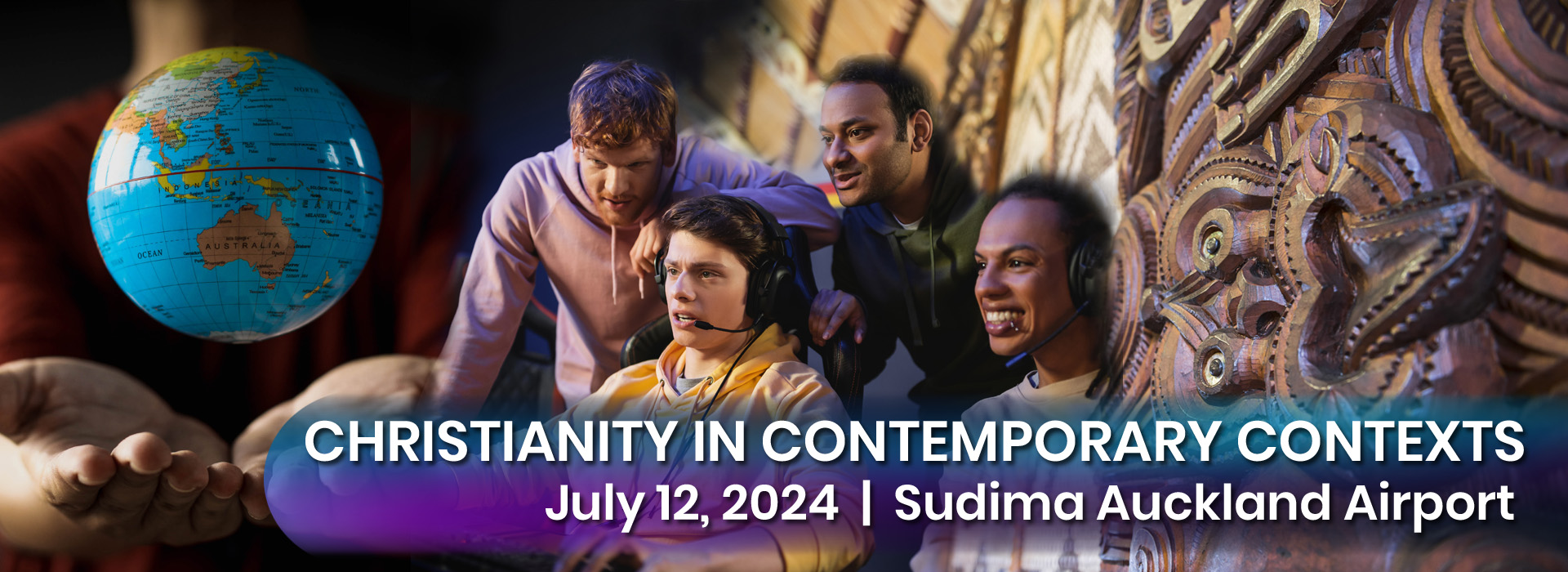
A MISSIONS INTERLINK DISCUSSION FORUM
Friday 12 July, 2024 | Sudima Auckland Airport Hotel
Costs: MI Members $220 | Non-Members $280 | Students & Retirees $150
Includes lunch and refreshments.

This discussion forum is for anyone interested in propagating the gospel in different contexts, whether that is around the world or within your neighbourhood. It will be of special interest to missions and church leaders, church planters, and those working interculturally as witnesses within their sphere of influence (community, workplace, school, clubs, etc.)
It is right to lament the decline in church attendance in Aotearoa New Zealand and the loss of influence in society, but in doing so we must not lose sight of the great opportunities that changes in Western nations provide for the gospel and church growth. While investment in traditional expressions of Christianity seem to be having diminishing returns, we can draw inspiration from other parts of the world where Christianity continues to flourish. The key is to understand how to better contextualise the gospel and our expressions of faith in Christ for our current contexts, rather than remain committed to forms that worked generations ago.
At this forum three contributors will update us with what is happening with faith in Jesus in their contexts and inspire us with possibilities. We will start with a big picture look at the state of Christianity around the world, look at the way our faith is emerging in local indigenous contexts, and step into the metaverse to see a context of billions accessible at the click of a button. Come join us and expand your ministry vision!
Dr Gina Zurlo
Global Contexts
Gina is a world renown Christian demographer and historian who holds a PhD in History and Hermeneutics from Boston University School of Theology (2017). She is an interdisciplinary scholar, crossing between history, sociology, and World Christianity with particular interest in women’s experiences of Christianity and church life worldwide.
She is the Co-Director of the Center for the Study of Global Christianity at Gordon-Conwell Theological Seminary (South Hamilton, Massachusetts) and Visiting Research Fellow at Boston University’s Institute on Culture, Religion and World Affairs.
Gina was named one of the BBC’s 100 most influential and inspiring women of 2019 for her work in studying religious statistics, and, in particular, the future of religion worldwide.
Gina will share findings from her research into the growth of Christianity around the world. These findings are sure to surprise and encourage you!
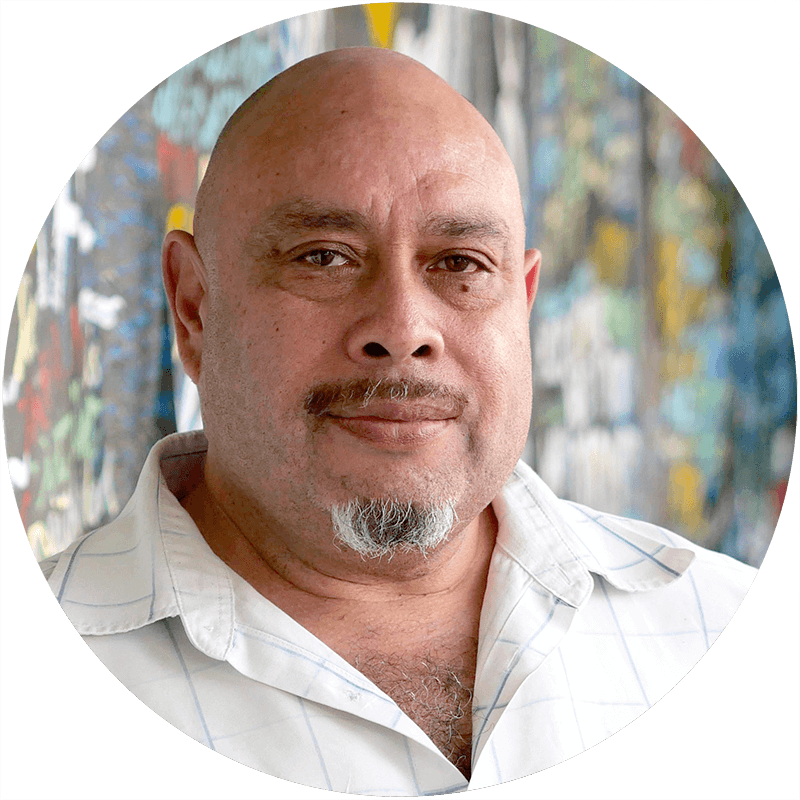
Brad Haami
INDIGENOUS CONTEXTS
Brad is the current chair of Te Rūnanga o te Wānanga Amorangi—The Māori Council for Laidlaw College—and sits on the governing board of the college. He is a lecturer in biculturalism at Laidlaw and holds a Graduate Diploma in Indigenous Theology. He is an accomplished Māori author, journalist and lecturer with added experience in film and television media. He has produced exploratory works on mātauranga Māori (Māori knowledge), Māori history and more recently Māori biography. He was recently the Māori curator/expert on the acclaimed Te Taiao / Nature exhibition at Te Papa Tongarewa Museum. His interest in storytelling is primarily based on the ‘power of the narrative’. Whether in an oral, written, documentary or cinematic form, it has the capacity to convey a message that stimulates conversation and transforms hearts, minds and communities.
Brad will share with us from an insider’s perspective about the reality of living as a follower of Jesus in highly spiritually aware indigenous contexts.

Dr Stephen Garner
DIGITAL CONTEXTS
Stephen is a Senior Research Fellow at both Laidlaw College and the Australian College of Theology. His specialty is theology in dialogue with science, technology and new media, as well religion, media and popular culture. One of his current research projects is investigating video games and spiritual formation. His other research interests include: media and religion, spirituality, public theology, religion and popular culture, and ethics, and transhumanism. As well as being a theologian, Stephen has an academic and commercial background in Computer Science. His most recent book (co-authored with Heidi Campbell) is Networked Theology: Negotiating Faith in Digital Culture (2016).
Stephen will explore with us opportunities for sharing Jesus and contributing to spiritual development within the digital realms that are already hugely populated spaces with little intentional gospel witness.

SPOTLIGHT ANNOUNCEMENTS
LATEST NOTICES & EVENTS
LEARN ABOUT MISSIONS
Bridge Mission happens again on 29 April, 2024. This is a chance for those considering mission to explore what that might look like, what is involved, and what they can do to prepare. For more details, check out the events page here: https://omf.org/nz/get-involved/events/.
REGEN24 GOSPEL VISION CONFERENCE
The gospel changes everything. The reason the gospel changes everything is that it is the gospel alone—the great victory of the grace of God in the cross of Christ—that can truly change hearts, whether the heart in discipleship, the heart of leadership, or a heart for mission. Church members and leaders are invited to come to Regen24, to take a deep dive into a gospel vision for discipleship, leadership, and mission.
Date:
Wednesday 8—Friday 10 May, 2024
Venue:
St Margaret’s Anglican Church
102 Hillsborough Road, Hillsborough
AUCKLAND
MORE INFO. Find out more and register now at Eventbrite.
REBUILDING: WHAT IS GOD DOING IN TÜRKIYE TODAY
NZ TURKEY NETWORK NATIONAL CONFERENCE
Early bird tickets now available!
Recovery & rebuild efforts continue after the Feb 2023 quakes, and the physical & spiritual landscape of Türkiye continues to change. Come and hear stories of God at work in remarkable ways, keep up to date with what’s happening on the ground, hear the heart of local leaders and learn something new! Various workshops available. Plus, join a special interactive workshop space as well as a virtual 7 Churches tour and prayer journey. Earlybird discounts apply until 31 May.
Dates:
Friday 26—Saturday 27 July, 2024
Venue:
City Church
346 Manchester Street
CHRISTCHURCH
MORE INFO & TO REGISTER:
https://events.humanitix.com/national-conference-2024
2024 MI AUSTRALIA NATIONAL CONFERENCE
The 2024 Missions Interlink Australia National Conference is approaching again with the theme; “Embracing the New Landscape.” MI Aus invites you to join them for this mission-focused, professional event designed for Australian (and New Zealand) missions leaders who play a crucial role in shaping the future of global missions and training the next generation of missions workers.
Save The Dates: 25-26 July, 2024
Location: MELBOURNE (TBC)
Watch this space for future registration information.
GLOBAL MEMBER CARE NETWORK 2024 CONFERENCE
The Global Member Care Network is working on their vision to bring the Global Member Care world together again for their 4th Global Member Care Conference, this time in Africa. The significance of this location is to serve African mission movements, while learning from their unique strength in missions and member care. Past experiences have shown that surprising connections and transformative insights happen individually, organizationally, and nationally when member care practitioners gather from various national missions movements all over the world.
Location: Nairobi, Kenya
Dates: 28 Oct – 1 Nov 2024
For more information visit: https://globalmembercare.com/conference-2024/
MISSIONS INTERLINK VACANCIES
Founded in 1972 as the Evangelical Missionary Alliance (NZ), Missions Interlink (NZ) is the association of missions passionate organisations and individuals supporting and/or serving in missions and outreach ministries from and within Aotearoa New Zealand.
With over 70 member organisations plus individual members, Missions Interlink is the largest representative body of outreach and training ministries in the nation. While our members support the work of Missions Interlink operations, our members are Missions Interlink, with our central operations providing services free of charge to anyone serving in or supporting local or global missions regardless of membership status.
Jay Mātenga and Pauline Wood are the latest in an honour roll of quality leaders who have served the Missions Interlink community. David and Lydia Hall, Gordon and Helen Stanley, David Jenkins with Terry Trail, and Ray Windsor (in descending order) have guided the fellowship in the past alongside other faithful volunteers. It is time once again for a changing of the guard.
Jay (Executive Officer) and Pauline (Administrator) will vacate their roles from 31 July 2024, so Missions Interlink has need of new personnel to serve the purposes of the association and undertake the functions required to meet those purposes. The location of these roles are flexible. Missions Interlink has no dedicated office. Personnel work remotely, usually from home.
ADMINISTRATOR
The most urgent need is for an Administrator. This is a living wage paid role for 8 hours per week. A list of expected tasks is available. Click here to download.
Reporting to the Executive Officer, the Administrator must be proficient in book-keeping (e.g. XERO, budget creation, income/expense management, subscription management, donation management, GST payments, working with independent financial reviewers), general computing (e.g. MS Word, Excel, Acrobat, basic graphic design), communications (clearing mail, writing letters, minute taking, email, bulk email services, phone, Zoom), event/project management (promoting and hosting meetings, conferences, forums; planning campaigns and other projects), and report creation (annual reports, Charities Services reporting).
Preferred start date: 1 July 2023 (at the latest).
EXECUTIVE OFFICER
The Executive Officer (aka Director) carries the weight of leadership for Missions Interlink operations, fulfilling the purposes of Missions Interlink and the will of the Missions Interlink Council. Every Executive Officer has brought their own competencies and passions into the role, shaping it for the benefit of all. A meeting of Missions Interlink members is being held on 30 May 2024 to explore the future direction of Missions Interlink. Findings from this meeting will guide the Missions Interlink Council in its assessment of the strategic direction for Mission Interlink and the type of leadership skills desired to guide the community in that direction.
Essential functions typical of the Executive Director role are to represent the members in various forums (regional missions groups, NZ Christian Network, Inter Church Bureau, NZ Government, IRD, Charities Services, member benefit providers), promote missions from their experience and expertise (national conferences, local churches, other gatherings), develop and maintain member resources (e.g. legal opinions, missionary care advice, templates and guidelines), create resources of benefit to members and missions in general (leaders forums, spiritual retreats, special interest clusters, Annual General Meeting), work on strategy and goals with and report to the Missions Interlink Council (3x per year).
This is a self-supporting role requiring executive leadership experience in missions. It would be an ideal role for a returning missions leader retaining donation support. Weekly hours are negotiable. There is no start date determined for this role yet.
EXPRESSIONS OF INTEREST
For the past three seasons of Missions Interlink leadership these roles have been fulfilled by a husband/wife combo. That need not be the case always, but it is a convenient option. If there is interest from a duo, you need to know that the Executive Officer responsibilities will take longer to shape, with the Administrator required ASAP.
Missions Interlink is seeking expressions of interest for both roles. You must have a right to live & work in Aotearoa New Zealand already. Formal application processes for at least the Administrator position will be available in June. Please express your interest with an attached CV to Missions Interlink Council Chairperson, Joseph Bateson by email: joseph.bateson@wec-int.org.
ABOUT US
Executive Officer Jay Mātenga
Administrator Pauline Wood
Executive Team
Joseph Bateson (Chair), Glenn Carter (Vice Chair), Jon Horne (Treasurer), Andrew Marriott (Secretary), Rebecca De Jong.
MI Council
Arotahi (formerly NZBMS), Asian Outreach, Beacon Partnerships (formerly LeaDev-Langham), Church Mobilization Trust, Eastwest College, European Christian Mission, GC3, International Teams, Interserve, Laidlaw College, MotiVate, NZCMS, OMF, Pioneers, SIM, WEC, World Vision, with individual member: Jon Horne.
Our Purpose
We facilitate collaboration towards participation in mission from and within Aotearoa New Zealand. We nurture the missions community in Aotearoa New Zealand to connect, converse, and conduct mission with the aim of working together: on mission.
Connecting the missions community
from and within Aotearoa NZ
for God’s glory everywhere, always.
MI SERVICES include (but are not limited to):
MI BULLETIN MI Online Member Directory
MI ManaakiApp (for retail discounts & coupons)
MI Research and Resources
MI Conferences, Clusters & Collaborations:
Admin, Mission Leaders, Church Mission, Diaspora,
Member Care, Mission Training, Mobilisation, & more.
HOW TO CONTACT US
PO Box 64 379
Botany 2163
Auckland, New Zealand
+64 9 320 4408
CLICK HERE to drop us a note.
ADVERTISING
The MI BULLETIN is distributed by email every month to around 1000 missions interested people.
Commercial Rates & Sponsorship
Only charity rates are listed here. Commercial ad rates and sponsor benefits are set by negotiation.
Spotlight Notices
Text only (up to 50 words with one web link).
MI members — FREE
Non members — $40 per spotlight
BULLETIN Full Colour Ad Space
Artwork must be supplied (.jpg or .pdf, 300dpi)
Deadline: Last Friday of the month before issue.
COST: MI MEMBERS
First Month
A4 Portrait—$150
A5 Landscape—$110
Successive Months
A4 Portrait—$100
A5 Landscape—$80
Non-members, double the member rate.






